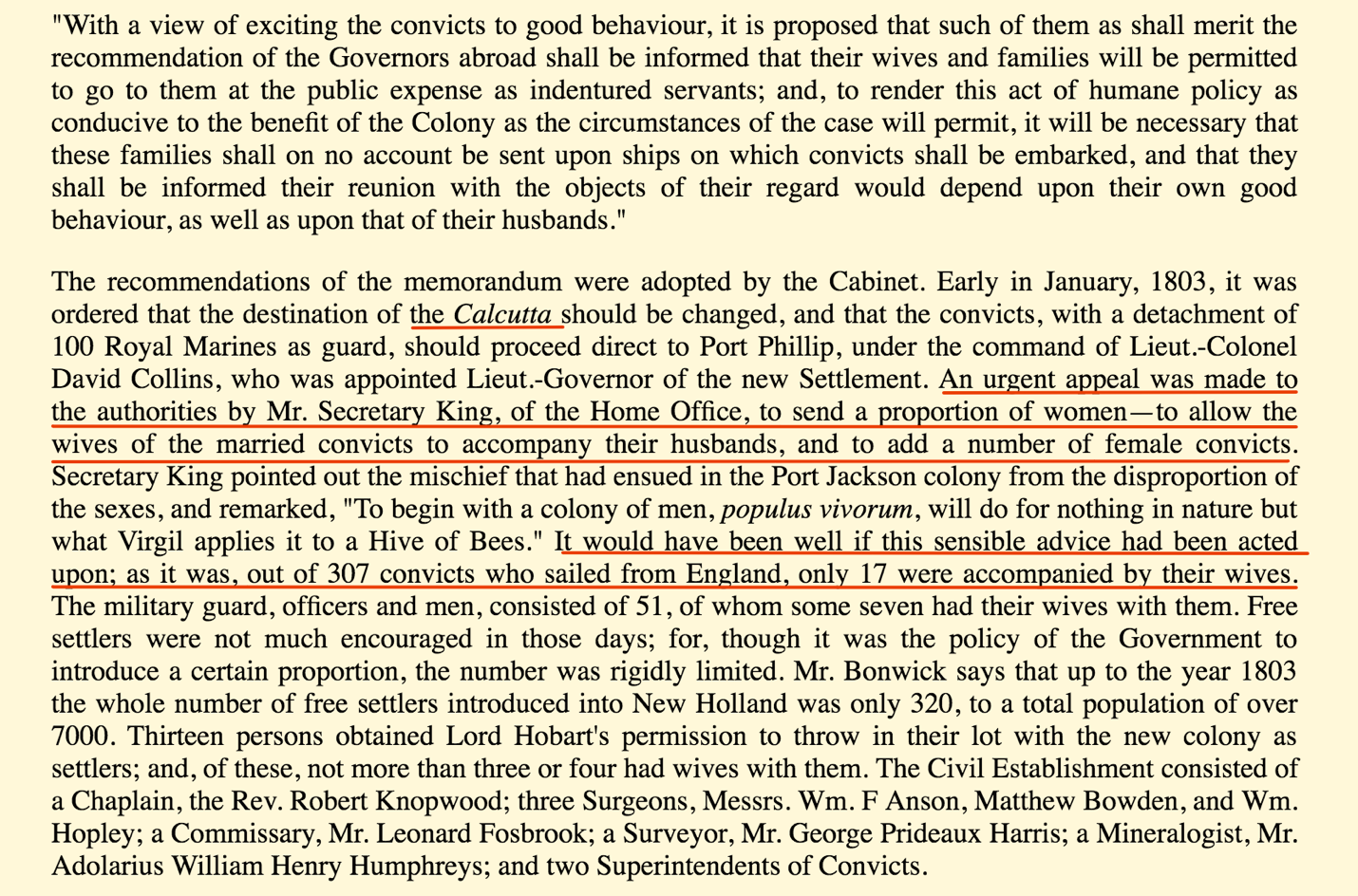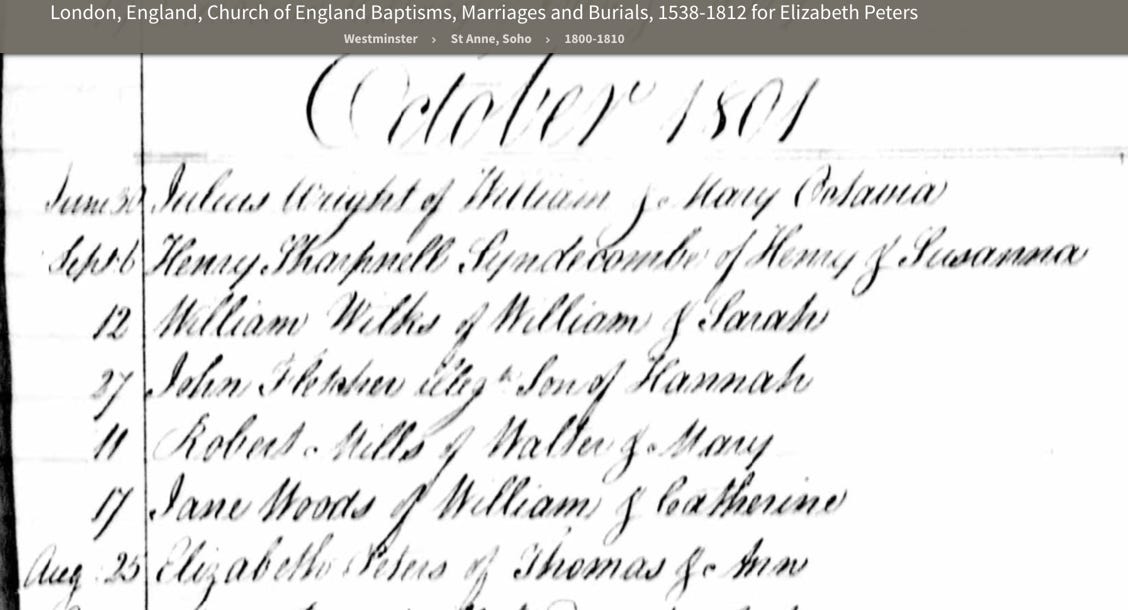When a man was transported to Australia his family was left without means of support. It was common for his wife and children to end up on parish relief or in the local workhouse.
“ … In petitions seeking mitigation, personal circumstances were frequently cited to demonstrate factors like the convict’s good character, their innocence, that they were seduced into crime by others, or driven by desperate circumstances; perhaps they were too old, sick, young or insane to be sent overseas or remain in prison. A commonly made plea is that the convict’s transportation will leave their families destitute: without their income, the convict’s family, be they elderly parents or a young wife and children, will be forced on to parish relief.
But faced with the misery of separation from their loved ones, and potential destitution from the loss of their income, we also find many petitions from those seeking to join family members in New South Wales or Van Diemen’s Land. Most of these petitions are from wives, many of them wishing to travel with their children to join their husbands in exile, although there are also examples of convicts requesting that if they have to be transported their families be allowed to accompany them.”
http://blog.nationalarchives.gov.uk/blog/share-fate-petitioning-join-transported-overseas/#more-26696
An Extract from Chapter 1 of: A Voyage to Establish a Colony at Port Philip in Bass's Strait On the South Coast of New South Wales, in His Majesty's Ship Calcutta, in the Years 1802-3-4 by James Hingston Tuckey (1776-1816)
“… Among the convicts on board, were some who, by prodigality, and its attendant vices, had degraded themselves from a respectable rank in society, and were indebted to the lenity of their prosecutors alone for an escape from the last sentence of the law. Some of these men were accompanied by their wives, who had married them in the sunshine of prosperity, when the world smiled deceitfully, and their path of life appeared strewed with unfading flowers; in the season of adversity, they would not be separated, but reposed their heads upon the same thorny pillow; and as they had shared with them the cup of joy, they refused not that of sorrow. Those alone who know the miserable and degraded situation of a transported felon, can appreciate the degree of connubial love, that could induce these women to accompany their guilty husbands in their exile.
The laws can only make distinction in crimes, while the criminals, whatever may have been their former situation in life, must suffer alike for crimes of the same nature: it therefore entirely depended on us to ameliorate their condition, and grant such indulgences, as the nature and degree of the crime, and the otherwise general character and conduct of the prisoner seemed to deserve. To these helpless females, all the attentions that humanity dictated, and that the nature of our service would admit, were extended, but still it was impossible to separate their situations entirely from their guilty husbands, they were consequently far, very far, from being comfortable; and one of them, borne down by the first hardships of the voyage, which she felt with redoubled force from being far advanced in her pregnancy, fell a victim to her misplaced affection before our arrival at Teneriffe.” http://adc.library.usyd.edu.au/data-2/tucacco.pdf

Papers & Proceedings of the Royal Society of Tasmania
THE EXPEDITION UNDER LIEUTENANT GOVERNOR COLLINS IN 1803-4. By JAMES BACKHOUSE WALKER.
Read 14th October, 1889. http://gutenberg.net.au/ebooks13/1300961h.html#ch-18
Thomas Peters and his wife Mary Ann (Ann) had a daughter, Elizabeth, who was born on 25th August 1801. (She was baptised on 7th October 1801.) When Elizabeth Peters was just 20 months old, she and her parents set sail for Australia aboard the prison ship Calcutta.

London Metropolitan Archives, St Anne, Soho, Transcript of baptisms, marriages and burials,
Jan 1800-Mar 1802, DL/T/087/001 via Ancestry.com Operations, Inc.
29. RESEARCH Part B - A story of Thomas and Ann Peters.
30. RESEARCH Part B - Thomas Peters is transported for the term of his natural life
31. RESEARCH Part B - Mary Ann Peters accompanied her convict husband
32. RESEARCH Part B - 1803 Thomas, Mary Ann, & Elizabeth (2yrs) came to Port Phillip aboard the Calcutta
33. RESEARCH Part B - 1804 Peters family transferred to Van Diemen’s Land & Martha is born
34. RESEARCH Part B - 1805 Hobart Town: Mary Peters receives a Land Grant on New Town Rivulet
35. RESEARCH Part B - 1806 & 1807 The Peters have a farm with 4 cattle 2 sheep & a goat.
36. RESEARCH Part B - 1808 - 1812 Hobart Town: Martha dies, Thomas is pardoned, & 3 babies are born.
37. RESEARCH Part B - 1814 Hobart Town: Property deals, Horse races & a baby.
38. RESEARCH Part B - 1815 - 1816 Hobart Town: A juror, a boat race, supplying wheat & meat + 8th child
39. RESEARCH Part B - 1817 Hobart Town & York Plains: Thomas Peters receives a Land Grant
40. RESEARCH Part B - 1817 Hobart Town & Bagdad: the Duke of York & Baker’s farm
41. RESEARCH Part B - 1817 Hobart Town,York Plains, Bagdad & Tarrets’s farm
42. RESEARCH Part B - 1817 Hobart Town & Bagdad: Education, an executor, & stock moved from Herdsman’s Cove.
43. RESEARCH Part B - 1818 Hobart: A heavy cart and a ferry accident
44. RESEARCH Part B - 1818 Hobart: A court case, a house for sale. & Elizabeth marries George Armytage
45. RESEARCH Part B - 1818 Hobart: Stock on Birch’s land + Kickerterpoller & the Friendly Missions
46. RESEARCH Part B - 1819 Hobart: Rents to Supreme court & Mary Ann Peters (nee Hews) dies aged 39
47. RESEARCH Part B - 1819 - 1821 Hobart: Found guilty of ‘contumacious conduct in court’.
48. RESEARCH Part B - 1824 - 1829 Bagdad: Louisa marries John Hayes & Charlotte marries Francis Flexmore
49. RESEARCH Part B - 1830 Tasmania: The Black Line.
50. RESEARCH Part B - Nov 1930 Many Aborigines slip through the Black Line and the Peters house is raided.
51. RESEARCH Part B - 1830 Bagdad: As the Black Line advances settlers houses are attacked
52. RESEARCH Part B - 1830 Bagdad: Sophia Peters (16) and Ann Peters (14) are speared & Ann dies of her wounds.
53. RESEARCH Part B - 1830 - Following the Tasmania Wars the surviving traditional owners are rounded up
54. RESEARCH Part B - 1831 - 1839 Bagdad: Mary Ann Peters & Sophia Matilda Peters both got married,
55. RESEARCH Part B - 1839 Bagdad Thomas Peters dies
56. RESEARCH Part B - The 8 Children and 48 Grandchildren of Thomas & Mary Ann Peters
57. RESEARCH Part B - A Story of Thomas Peters and ‘the Brady Gang’
58. RESEARCH Part B - Where to next? Choices, choices, choices.
Research - Part B

